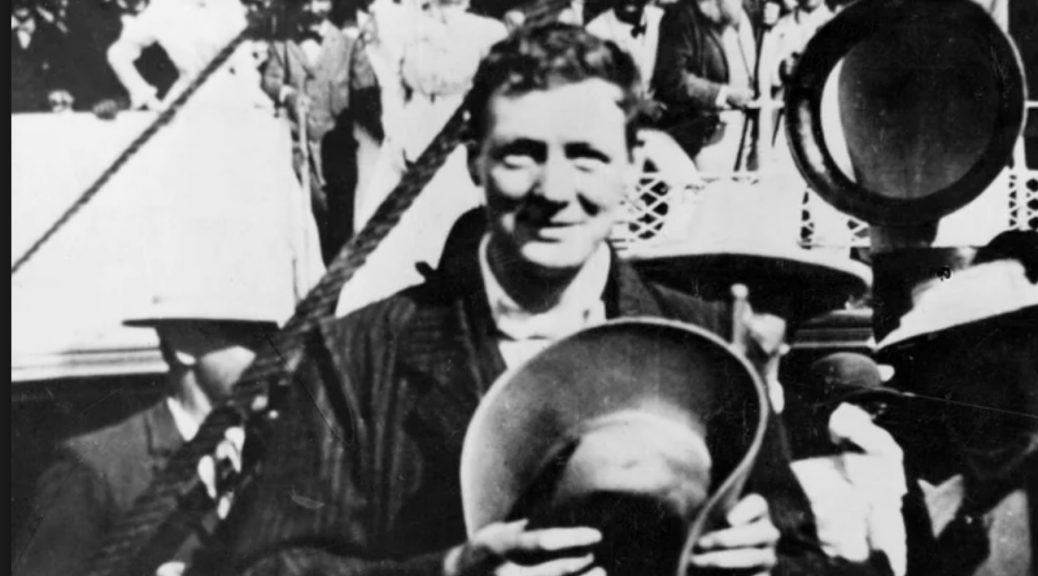
Churchill’s Escape from the Boers, 1899
Escape from the Boers, 1899:
Please can you comment on, the “Dutchman, Burgener by name,” mentioned by Churchill in his account of his escape from the Boers in his autobiography, My Early Life? Is he one and the same person as the Charles Burnham mentioned by Sir Martin Gilbert in Churchill: A Life? Perhaps the surname was changed to protect Mr Burnham`s position in South Africa? Yet thoughthree decades had elapsed by the publication of My Early Life. It seems certain that Churchill knew of Burnham and the role that he had played. The latter had written to him in 1908 (Vol. 1 of the Official Biography, 502-04). He was one of those to whom WSC sent an inscribed gold watch in appreciation of their assistance. —W.A.
“Burgener” was Burnham
You are right. “Burgener” was in fact Charles Burnham. Whether Churchill disguised his real name in My Early Life I am not sure. In that book, Churchill divulged the name of the mine manager, John Howard. Perhaps he had simply mistaken Burnham’s name.
At any rate, “Dutchman Burgener” was the name WSC assigned to the man who helped Churchill stow away in a consignment of wool on a railway car bound for Lourenço Marques, now Maputo, Mozambique. Further on, Churchill adds that “Burgener” met him in Delagoa Bay and led him to the British Consulate, which enabled his return to Durban and the British lines.
Burnham Identified
Randolph Churchill divulged Burnham’s identity in the official biography document volumes. Randolph received a letter from John Howard’s son, which corrects Churchill’s own account. (Re Burnham, see the paragraph in bold face below).
Howard fils added that the Boers came to arrest Howard some time later. Captain Haldane (who later also escaped) tipped them off about Howard’s role. But Howard entertained them with drinks. Then, with pistols in his pockets and standing over rifles they’d stacked in a corner, he convinced them to go away.
Churchill himself did not let out Howard’s name until My Early Life. But one John Hulme published an account of the escape in The Temple Magazine in 1901. He mentioned Mr. Dewsnap of Oldham (as did Churchill in his first political campaign, but Dewsnap was not harmed). Hulme also implied that the miners had killed a Boer who had learned they were hiding the fugitive.
From the Official Biography
The Churchill Documents, vol. 3, Early Years in Politics 1901-1907 (Hillsdale College Press, 2007), 1132-35:
L. C. B. Howard to RSC
EXTRACT
31 May 1963 10 Coronation Buildings, Germiston, Transvaal
… First of all, on reading through your Father’s narrative I see he does not mention the fact that while down the mine at the T. and D. B. Collieries, a few days after he was lowered into the mine, he took ill and had to be brought to the surface again, where he was ensconced in a room in the mine office building, which was used for storing office equipment; of course big empty packing cases and bundles of grain bags etc, were introduced into the room to make his concealment more secure, and so safeguard his presence there; how many times didn’t my old Dad relate these facts to me, and how he arranged special signals for your Father, so that he would not be taken unawares should any unwanted person happen to knock at the door….
Secondly, your Father in his writings, talks about the Transvaal Collieries, the correct name of the mine is the Transvaal and Delagoa Bay Collieries.
Thirdly, he says, our house where he first met my Dad that memorable evening many years ago, was a double storey building, it was only a single storey structure; however, no one could blame your Father for these mistakes, under these very trying circumstances, and what is more it was very dark at the time.
“A fine type of man”
Fourthly, the name of the man whom my Dad had to introduce into his plans for your Father’s safety, in helping him out of the country, because of the wool which was urgently required, was a Mr. Burnham and not Burgener as your Father has it. Burnham was also a fine type of man.
And lastly, your Father mentions the corrugated iron fence at the Staats Model School in Pretoria, which he scaled in his escape from there as being about ten feet in height; it was only 6 ft and is there to this very day. I went and had another look at it, on the afternoon of our gathering of the 20th instant. The house which stood on the other side of the fence, I see, has been demolished. Too bad; it should have been preserved as well….






